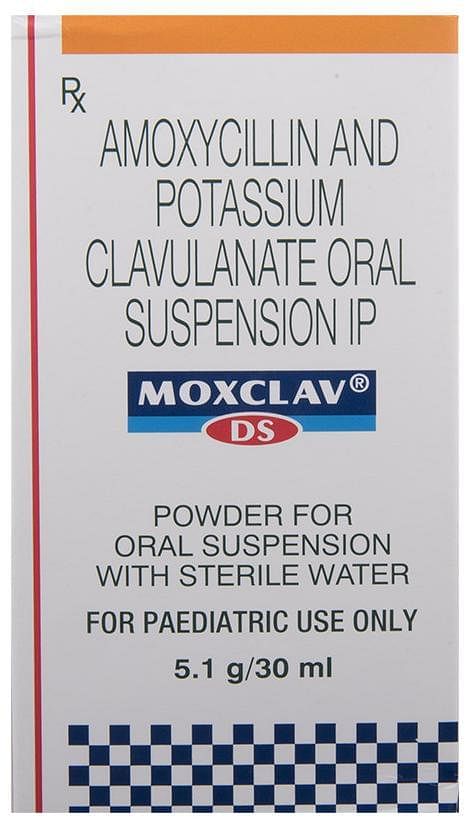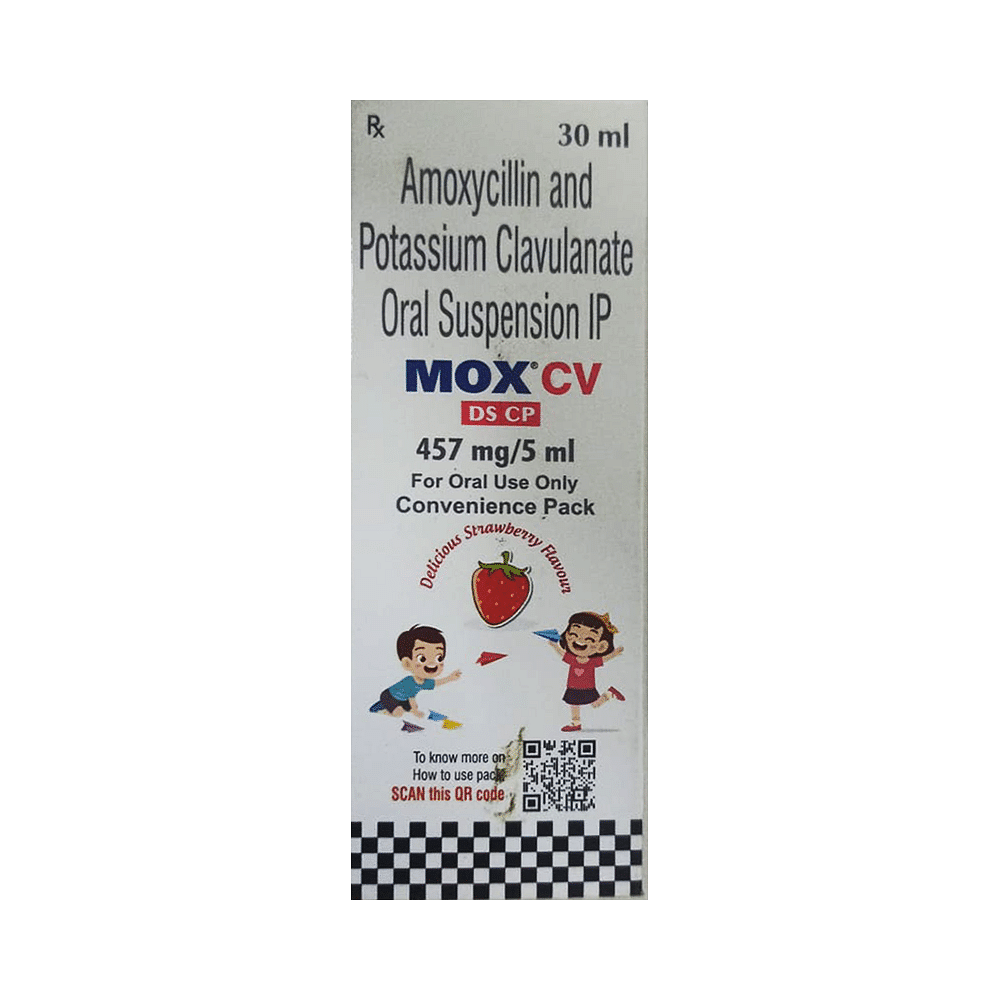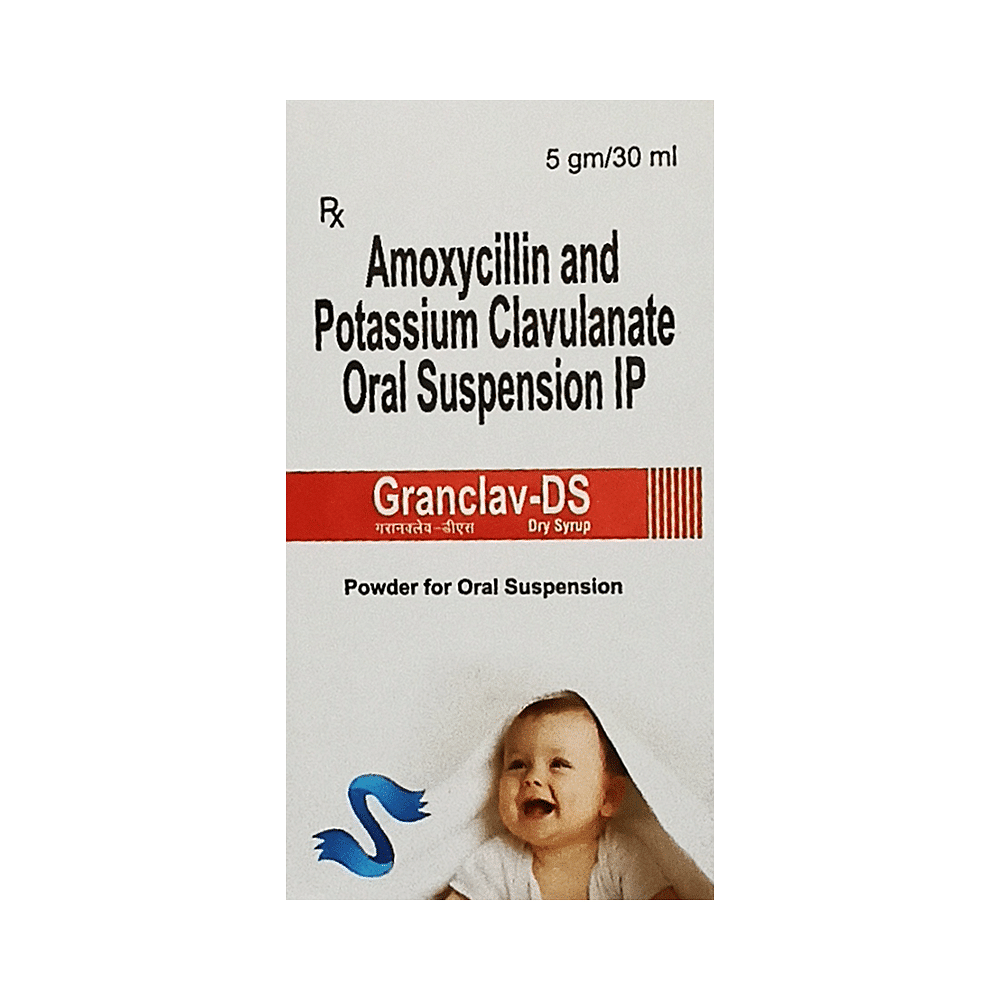
Phinmox CV Oral Suspension
Manufacturer
Indophin Remedies Pvt. Ltd.
Salt Composition
Amoxycillin (400mg) + Clavulanic Acid (57mg)
Key Information
Short Description
Phinmox CV Oral Suspension is an antibiotic medicine that helps treat bacterial infections of the ear, nose, throat, chest, lungs, teeth, skin, and urinary tract.
Dosage Form
Oral Suspension
Introduction
Phinmox CV Oral Suspension is an antibiotic medicine that helps treat bacterial infections of the ear, nose, throat, chest, lungs, teeth, skin, and urinary tract. It is capable of killing bacteria that have become resistant to other therapies and thus also helps treat tuberculosis that is resistant to other treatments. You can give Phinmox CV Oral Suspension to your child with or without food. It is better to give it with food as that helps increase absorption and decrease the risk of stomach upset. The doctor may prescribe giving it two to three times a day. Medicine dose depends on the severity of the infection, its type, and your child’s body weight and age. So, stick to the dose, time, and way prescribed. If your child vomits the medicine within 30 minutes of intake, let the child calm down and repeat the dose. Do not double dose if it's the time for the next dose.
Directions for Use
Take this medicine in the dose and duration as advised by your doctor. Check the label for directions before use. Measure it with a measuring cup and take it by mouth. Shake well before use. Phinmox CV Oral Suspension is to be taken with food.
Safety Information
Side Effects
No common side effects listed
Alcohol Warning
It is not known whether it is safe to consume alcohol with Phinmox CV Oral Suspension. Please consult your doctor.
Breastfeeding Warning
Phinmox CV Oral Suspension is safe to use during breastfeeding. Human studies suggest that the drug does not pass into the breastmilk in a significant amount and is not harmful to the baby.
Pregnancy Warning
Phinmox CV Oral Suspension is generally considered safe to use during pregnancy. Animal studies have shown low or no adverse effects to the developing baby; however, there are limited human studies.
How it works
Phinmox CV Oral Suspension is an antibiotic. It has two active agents, amoxycillin and clavulanic acid. Amoxycillin works by preventing the formation of the bacterial protective covering (cell wall) essential for the survival of the bacteria. Whereas, clavulanic acid serves a special purpose of inhibiting an enzyme (beta-lactamase) that is produced by resistant bacteria. This makes the combination of amoxycillin and clavulanic acid an effective line of treatment for many types of infections.
Quick Tips
Your child must complete the entire course of antibiotics. Stopping too soon may cause the bacteria to multiply again or cause another infection. Encourage your child to drink plenty of water in case diarrhea develops as a side effect. Never give Phinmox CV Oral Suspension until and unless prescribed by the doctor. Do not give Phinmox CV Oral Suspension to treat common cold and flu-like symptoms caused by viruses. Never save medicine for future illnesses. Check 'expiry' before giving Phinmox CV Oral Suspension to your child. Immediately discard all the expired medicines. Stop Phinmox CV Oral Suspension immediately if your child develops an itchy rash, facial swelling, or breathing difficulty.
Related Medicines

Moxclav DS 457mg Oral Suspension

Mox CV DS CP Oral Suspension Delicious Strawberry

Bclav-DS Dry Syrup Orange

Granclav-DS Dry Syrup

Ziclave Forte Oral Suspension

Moxyben Oral Suspension

Exsanclav DS Oral Suspension

Amoxylav-DS Dry Syrup

Xclav DS Oral Suspension

Stilmox-CV Dds Dry Syrup
Frequently asked questions
Can other medicines be given at the same time as Phinmox CV Oral Suspension?
Phinmox CV Oral Suspension may interact with other medications or substances. It is crucial to inform your child's doctor about all other medications they are taking before starting Phinmox CV Oral Suspension. Additionally, it is essential to consult with your child’s healthcare professional before administering any medication to your child.
Can I get my child vaccinated while on treatment with Phinmox CV Oral Suspension?
Generally, antibiotics do not interfere with the ingredients in vaccines or cause a negative reaction in children who have recently received them. However, it is advisable to delay vaccination until your child has recovered from any illness and feels well enough. Once your child recovers, they can receive the vaccine as per your healthcare professional's advice.
Which lab tests may my child undergo while taking Phinmox CV Oral Suspension on a long-term basis?
If the treatment with Phinmox CV Oral Suspension is prolonged, periodic kidney and liver function tests can help monitor your child's condition.
Can I give a higher than the recommended dose of Phinmox CV Oral Suspension to my child?
Giving a dosage exceeding the recommended amount for this medication may increase the risk of adverse effects. If your child experiences increased symptom severity, consult your doctor for re-evaluation.
Can I stop giving Phinmox CV Oral Suspension to my child when the symptoms are relieved?
No, do not discontinue the medication before completing the full course of treatment, even if you notice symptom improvement. It is essential to continue the entire course as the medicine may still be providing benefits.
Can the use of Phinmox CV Oral Suspension cause diarrhea?
Yes, Phinmox CV Oral Suspension can induce diarrhea. This antibiotic effectively targets harmful bacteria in the body. Additionally, it may affect the balance of good bacteria in your child's stomach, leading to diarrhea. If your child experiences diarrhea, encourage them to drink plenty of fluids and contact their doctor if the symptoms persist or signs of dehydration appear (less frequent urination with dark urine). Do not administer any other medicine without consulting a healthcare professional.
Do all viral common colds result in secondary bacterial infection?
Most viral common colds do not lead to secondary bacterial infections. Giving antibiotics to treat a viral infection can increase the risk of side effects. It is advisable to use antibiotics only after consulting with your child's doctor.
The mucus coming out of my child’s nose is yellow-green. Is it a sign of a bacterial infection?
Yellow or green mucus in the nose does not necessarily indicate a bacterial infection during a common cold. It's normal for mucus to thicken and change color (from clear to yellow or green) during this phase. Symptoms typically last 7-10 days.
Is there any sign which shows that my child needs immediate medical attention?
You must immediately contact your child’s doctor if they experience severe allergic reactions (breathing difficulties or skin rash), gastrointestinal infections (diarrhea), or liver damage (weakness, paleness, vomiting). While rare, these side effects can be serious and necessitate urgent medical attention.


